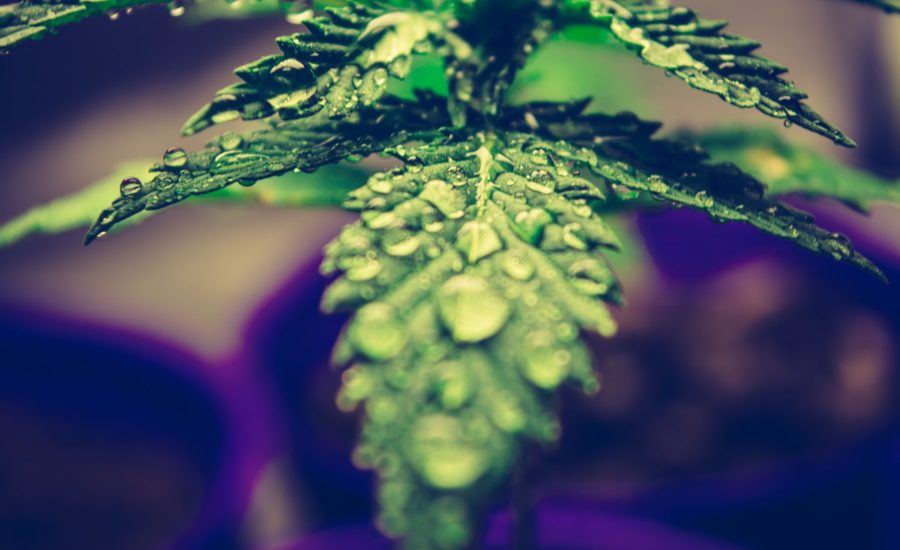There’s no question that compliant, sustainable cannabis operations are the goal of the cannabis industry. Regardless of whether you’re a single location retailer or a multi-state operator, the task of developing and successfully operating a compliant cannabis business that is also sustainability-minded is not a challenge for the weak of heart…or wallet.
The relationship between cannabis compliance and cannabis sustainability is a double-edged sword. In the interest of protecting consumers from this “dangerous” plant, regulatory bodies have turned cultivating something that literally grows freely like a weed in the sun into an industry carving an incredible environmental impact. Because so few states allow legal outdoor grows, cultivators are weighed down by compliance mandates resulting in significant water usage and massive electricity consumption.
Regulations around single-use, child-proof packaging, combined with mandatory dispensary exit bags results in literal tons of packaging waste, much of which is non-recyclable. In some cases, requirements around cannabis waste disposal demand that extractors make their cannabis waste and extraction byproducts “unusable” by mixing them with products like cat litter or bleach so they are impossible to consume…which ultimately results in doubling the amount of non-compostable waste headed to landfills.
And, it’s not just the rules around cultivation, packaging or waste disposal that make it hard for operators to focus on sustainability. The cost of operating a business in a highly-regulated industry, weighed down even more by the costs of 280-E and the thousands of rules covering everything from advertising to signage, security, labeling and more, leave little time, budget or operational bandwidth to dedicate to implementing more sustainable operations.
At Simplifya, our experts have distilled all of the regulations governing cannabis businesses in 21 states, and more than 400 local jurisdictions. The complicating factor for many operators is that it’s not just one set of cannabis regulations that they have to adhere to; in addition to state and local agencies, there are often federal agencies like OSHA and EPA, which have also issued regulations that impact cannabis business operations. Additionally, in states like California, operators have to deal with not only rules from the Bureau of Cannabis Control, but depending on their license type also the California Dept. of Public Health, California Dept. of Food & Agriculture, not to mention their local city or county mandates as well. That’s a lot of rules to keep straight. (Luckily, the state of California is looking to consolidate all three licensing agencies, with the intent of streamlining regulations, tax assessment, and collection.)
So, what’s the good news?
The good news is that operating in compliance with these layers of complicated regulations is — in the end — more affordable than not. In fact, many of the regulations in place can actually help operators develop, implement and maintain a more sustainably-minded operation. According to the Environmental Sustainability in the Cannabis Industry Impacts, Best Management Practices and Policy Considerations report issued by the National Cannabis Industry Association in 2020, companies that focus on sustainable practices often reduce their resource dependence and associated costs, positioning them to outperform their competitors in the long-term.
The better news is that many state regulatory and enforcement agencies are starting to see the light. For example, Colorado’s Marijuana Enforcement Division (MED) implemented new sustainability measures that went into effect on January 1, 2021. The new Sustainability Measures include:
- New sustainable options for licensees to make marijuana plant waste unusable and unrecognizable;
- New sustainable methods available to licensees exempt from the 50% Mixture Requirement, including:
- On-Site Composting
- Anaerobic Digestion
- Pyrolyze into Biochar
- Biomass Gasification
- Additional options for consumer waste recycling, including:
- Consumers can recycle their marijuana waste at Regulated Marijuana Stores and Hospitality Businesses
- Other Regulated Marijuana Businesses can recycle their waste at another Regulated Marijuana Business
Michigan’s LARA-MRA has established environmental compliance standards for growers and processors that include regulations governing air emissions, cannabis waste, hazardous waste, water usage and more. Even New Mexico, where it is anticipated that legalization will happen in 2021, launched a committee shortly after it decriminalized cannabis possession in 2019 to work through environmental and other aspects of the legalization. New Mexico’s focus on climate change and water issues will likely figure into the legalization proposal that emerges.
Ultimately…why pursue sustainability?
Much like we’re willing to pay more for certified organic tomatoes, grass-fed beef, or cage-free eggs, consumers of cannabis are growing more willing to pay extra for sustainably-grown cannabis in environmentally-friendly packaging. We want to feel good about the products that go into our bodies, and we feel good supporting businesses that are doing good.
And, investors are increasingly recognizing that climate risk is investment risk, and firms like Blackrock Capital are reevaluating their investment strategies on the belief that “sustainability- and climate-integrated portfolios can provide better risk-adjusted returns to investors. And with the impact of sustainability on investment returns increasing, [we] believe that sustainable investing is the strongest foundation for client portfolios going forward.”
At its heart, the spirit and driving force of the cannabis industry is centered on wellness…and that wellness-centered motivation extends to a passionate dedication to the wellness of our planet through sustainability and environmental consciousness. Building a brand and bringing a cannabis business to market that aligns with both this commitment to “wellness,” and complies with the requirements of state and local (and federal) sustainability mandates will always be a challenge.
However, as the industry continues to grow, we’ve reached a tipping point where regulations can help us serve as better stewards of the environment, and the industry, while promoting a move to more sustainable efforts, practices, and guidelines.

